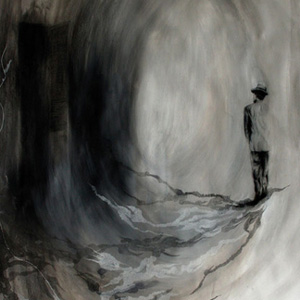This week, the Islamic State of Iraq and al-Sham (ISIS) announced that it was establishing a caliphate: the Islamic State, spanning the territory in Syria and Iraq that it has seized control of in recent weeks and months. The Sunni militant group’s statement, published online in various languages, said: “Here the flag of the Islamic State, the flag of monotheism, rises and flutters. Its shade covers land from Aleppo to Diyala.” The new caliph is the ISIS's leader, Abu Bakr al-Baghdadi.
The restoration of a caliphate has long been the stated objective for many jihadist organisations, which seek to overthrow the nation-state system imposed on the Middle East after World War I. But what exactly is a caliphate, and is the jihadist interpretation of the term accurately rooted in history?
In the simplest sense, the word “caliphate” means “succession” in Arabic, and refers to a political-religious entity. The term dates back to the 7th century, following the death of the Prophet Muhammad. Various caliphates ruled over large parts of the Muslim world over the following centuries, until the last one, the Ottoman Empire, was abolished in 1924.
In recent decades, extremist groups including Al-Qaeda, and Hizb ut-Tahrir have campaigned for the restoration of a caliphate. They have been unsuccessful because, unlike ISIS, they haven’t been able to control enough territory to make the idea a reality. It’s also worth noting that such campaigns rely on an emotional connection to the idea of the Muslim ummah (community) rather than a feasible project. In the modern political context of the Middle East, national divisions are important. ISIS and other extremist groups have spoken about European colonialism imposing borders – but today, there is no wide scale clamouring to break down these borders among populations in the region.
Historically, caliphates are governed by Islamic law. In the Sunni tradition, the leader is elected, and in the Shia tradition, selected from a group of imams. However, the Ottoman Empire – the last widely acknowledged caliphate – was certainly not a beacon of religious piety. Ottoman courts were notorious for their decadence – to the extent that Turkey’s current, conservative government is highly sensitive to popular portrayals of the Ottoman period. There were many injustices under Ottoman rule, but its empire – complex and diverse – was home to many different ethnicities and faiths, and it is broadly thought of as tolerant of these differences. The caliph is supposedly the successor to the Prophet Muhammad, but in practice, the Ottoman leaders were simply kings, and the term was used as a way to cement symbolic control over vast swathes of the Arab world.
ISIS is certainly not practising religious tolerance; there have been attacks on Shia, and reports of beheadings and crucifixions. ISIS has attempted to imbue the establishment of a new caliphate with major theological and ideological significance, and to assert its leader as the leader of all Muslims, the natural successor to the Prophet. The self-proclaimed caliph’s name, Abu Bakr al-Baghdadi, is a reference to Abu Bakr, the first caliph in 632 AD. ISIS has emphasised Baghdadi’s scholarly credentials (disputed by others), and its announcement of the Islamic State claimed that his lineage stretches back to the Prophet Muhammad’s tribe: an obvious attempt to position him as the literal successor.
Most scholars have dismissed this and, of course, the world’s 1.2 billion Muslims are unlikely to accept a new self-styled leader - particularly such a radical and violent one. This isn't the first time an extremist group has made such a move. When the Taliban took control of Afghanistan, it declared that its leader, Mullah Omar, was the new caliph. Despite all the theological pretensions of ISIS’s statement, they are not so different from their Ottoman forebears in one way – the political, rather than accurately theological, use of the term “caliphate”. The American academic Juan Cole notes on his blog that “the end of the caliphate didn't matter to most Muslims” and explains why ISIS’s declaration is unlikely to have much influence on global Islam:
“Small groups of cult-like fundamentalists ever after hoped for a restored caliphate, but it isn’t something on the minds of 99% of the world’s 1.5 billion Muslims. Sunni Islam has come sociologically to resemble Protestant Christianity, lacking a formal centre and largely organized on the basis of the nation-state. Thus each Muslim-majority country has a mufti, who is the highest legal authority, giving rulings on practice for the state. Ask the muftis, who have real authority backed by Muslim states, what they think of the serial murderer, al-Baghdadi.”

